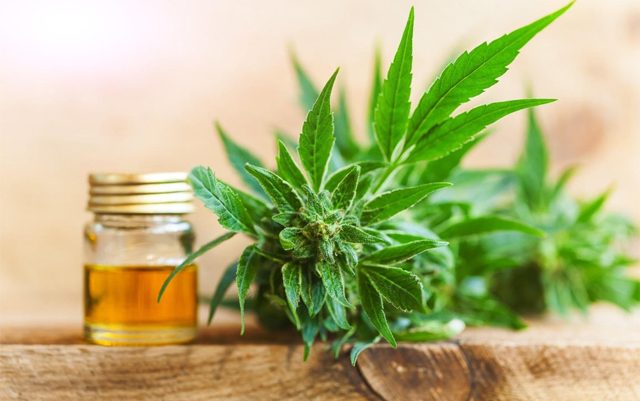By now, you’ve likely heard of CBD, or cannabidiol—otherwise known as the market that’s expected to surpass $20 billion by 2024. Despite our growing awareness surrounding CBD, there’s still a lot people don’t know about cannabinoids.
For example, do you know what CBG is? What about how it differs from CBD?
Keep reading to discover the answer to, “What is CBG?” In this guide, we’ll review everything you need to know to update your cannabinoid knowledge.
It’s time to get in the know about cannabigerol!
What is CBG?
Cannabis sativa contains more than 60 cannabinoids. The most common, however, include cannabichromene (CBC), cannabidiol (CBD), and cannabigerol (CBG).
Cannabinoids are substances that interact with cannabinoid receptors in the human body. The two main receptors are CB1 and CB2. CB1 is more associated with the body’s nervous system, while CB2 is more often associated with inflammation.
While it’s one of the most common cannabinoids, CBG only appears in small quantities within the cannabis plant. Due to cannabis prohibition and scarcity, scientists haven’t studied CBG’s full range of effects.
CBG is the precursor to CBD, THC, and CBC. Sometimes, it’s referred to as the stem cell.
CBGA is the acidic, inactive form of CBG. Over time, it changes, gets broken down, and becomes the base molecule other cannabinoids form from. In other words, CBGA is the starting point for THC and CBD.
The human body has a system called the endocannabinoid system that’s designed to receive these compounds. Then, the body uses cannabinoids to create a healthy equilibrium.
What is CBG, exactly? CBG works by interacting with the body’s endocannabinoid system. The CB1 and CB2 receptors in the body regulate neurohormones, which affect:
- Appetite
- Mood
- Metabolism
- Pain response
When cannabinoids react with these receptors, it can activate a response. Then, we experience physiological changes like weight gain or mood swings. Acting on these receptors can stabilize the body to help us avoid these changes.
The human body makes its own cannabinoids, called endocannabinoids, including Anandamide and 2-Arachidonoylglycerol (2-AG). The cannabis plant, on the other hand, contains plant-based cannabinoids, or phytocannabinoids, including CBG, THC, and CBD.
Like CBD, CBG is a non-psychoactive cannabinoid. That means it won’t make you high; an effect that’s associated with the cannabinoid THC.
How Do CBG, THC, and CBD Differ?
The main difference between THC and CBD is that THC is psychoactive and can get you high. CBD, on the other hand, has no psychoactive effects. In other words, CBD won’t alter your state of mind.
It also won’t affect your mental clarity or daily function.
Instead, most patients use CBD to relieve pain or stabilize other bodily responses.
For example, a lot of research into CBD is focused on preventing seizures. The FDA has even approved a pharmaceutical-grade CBD product called Sativex to help prevent seizures in children. CBD is also used to relieve pain, anxiety, and inflammation.
CBG is also non-psychoactive. However, research is still ongoing as to how CBG affects humans. Scientists are exploring how different non-psychoactive cannabinoids (like CBG vs CBD) can have different clinical uses.
Some reports suggest that CBG may be a partial agonist of cannabinoid receptors.
As a result, CBG is potentially able to serve different purposes than CBD. It’s also potentially able to treat different ailments, despite some possible pharmacological overlap.
Like CBD, CBG can help alter your mind in a way that might relieve anxiety and depression. While it’s non-intoxicating, CBG might help counteract the intoxicating effects of THC.
Studies show that CBG can activate the CB1 receptors, the same way CBD does. This allows it to decrease psycho-activation in the body. In other words, consuming high concentrations of CBD and CBG could help you counterbalance the “high” from THC.
What Are the (Potential) Benefits of Using CBG?
Every person has a different reaction to cannabinoids like CBD and CBG oil. With that in mind, it’s important to note that you might not experience every benefit of using CBG.
It’s also important to know that the potential benefits listed below show promise, but aren’t definitive proof. More clinical trials are needed to explore the full range of benefits CBG has to offer.
Now that you know what is CBG, let’s discuss how it can benefit the human body.
Glaucoma Treatment
It’s thought that CBG might help treat glaucoma and relieve intraocular pressure.
CBD on its own can’t help patients with glaucoma. THC, however, can. To avoid the intoxicating effects of THC, patients can use CBG to offset the intoxicating effects.
In this study, researchers found that CBG might have therapeutic potential for treating glaucoma patients. However, patients should continue taking their doctor-prescribed glaucoma medication. You should also only take CBG oil in addition to your prescription medications (and after consulting your doctor).
Antibacterial Properties
Methicillin-resistant Staphylococcus aureus, or MRS, is a type of staph infection. Unfortunately, MRSA is resistant to methicillin, which is a common antibiotic. This can make MRSA threatening or even fatal.
CBG might help treat MRSA. As an antibacterial agent, CBG has the potential to treat bacteria that are otherwise resistant to traditional antibiotics.
GABA Reuptake Inhibition
CBG inhibits gamma-aminobutyric acid (GABA) uptake. GABA is a naturally occurring amino acid. It works as a neurotransmitter within your brain to cause specific reactions.
When GABA is attached to a GABA receptor, it creates a calming effect throughout the body. This response can help reduce stress, anxiety, and fear. In some cases, it might also help prevent seizures.
Decreasing GABA reuptake can support these effects, leading to:
- Tension relief
- Muscle relaxation
- A sensation of calm and peace
In fact, GABA reuptake inhibitors are already used to treat anxiety. Decreasing GABA uptake using CBG could potentially help decrease anxiety for certain patients.
Colitis Inflammatory Bowel Disease
Rats were studied to determine if CBG could help with colitis with positive results.
In the study, inflammatory bowel disease patients were able to successfully manage:
- Abdominal pain
- Joint pain
- Cramping
- Diarrhea
- Poor appetite
- Weight loss
- Nausea
However, more research is needed to determine how CBG can help as an isolated compound.
Neurodegenerative Diseases
CBG might also help fight neurodegenerative diseases like Huntington’s.
CBG might successfully normalize the expression of abnormal genes that are connected to brain degeneration. This would allow it to work as a neuroprotective compound. By protecting the brain, CBG would help prevent Huntington’s, Alzheimer’s, and other conditions.
Cancer
Some studies are researching the potential CBG oil has on inhibiting cancer cell growth. In one review, researchers indicated that CBG could potentially slow tumor growth. In another study, it was concluded that plant-derived cannabinoids like CBG could work as tumor progression inhibitors.
CBG oil might also help enhance the activity of first-line therapies.
However, research has only studied a few forms of cancer, including colon cancer and breast cancer.
In addition to slowing the progression of cancer cell growth, CBG might also help with cancer treatment. Treatments such as chemotherapy can cause a range of uncomfortable side effects, including nausea. CBG might help stimulate appetite and reduce nausea to help patients undergoing treatment.
Inflammation
Inflammation is the body’s natural response to illness or injury. Too much inflammation, however, can cause:
- Cancer
- Asthma
- Obesity
- Type 2 diabetes
- Rheumatoid arthritis
- Heart disease
- Neurodegenerative diseases (like Alzheimer’s disease)
Over time, chronic inflammation can also damage healthy cells, tissues, and organs. This could lead to tissue death, internal scarring, and DNA damage.
You might also experience symptoms such as:
- Rashes
- Fever
- Fatigue
- Abdominal pain
- Chest pain
- Mouth sores
These symptoms range from mild to severe. They can last for a short period or for years.
CBG might help reduce inflammation throughout the body. If successful, reducing inflammation could also help reduce your risk of the conditions mentioned above.
One study explored CBG’s ability to treat eczema and psoriasis. These skin conditions are both caused by increased inflammation throughout the body.
Anxiety and Depression
As mentioned before, CBG is able to act as a CB1 antagonist. This could allow CBG to boost levels of anandamide, which is a molecule that regulates:
- Appetite
- Sleep
- Mood
CBG might also help block serotonin receptors, which could make it a beneficial antidepressant. Meanwhile, CBG’s ability to work as a GABA uptake inhibitor could reduce anxiety, too.
Learning more about what is CBG and the full range of CBG benefits could help doctors create new treatments for anxiety and depression.
Sourcing CBG
CBG requires specialized and pricey equipment for production. To extract CBG, you need to complete a process known as chromatography. The process used to extract CBG and breeding certain hemp strains can both impact the cost.
As demand grows, companies are also funneling money into developing plants that yield higher CBG levels. However, quality control is becoming an issue, too. All of these factors could impact how much you pay for CBG oil.
If you’re asking yourself, “How much does CBG cost?” make sure to research your options.
What Is CBG?: Keeping up With Cannabigerol
What is CBG? It’s a little cannabinoid that packs a big punch! Now that you know more about this cannabinoid, give it a try to experience these benefits and more.
Disclaimer: This article is intended for information and entertainment purposes only and is not intended to reflect the specific views of the publication.






